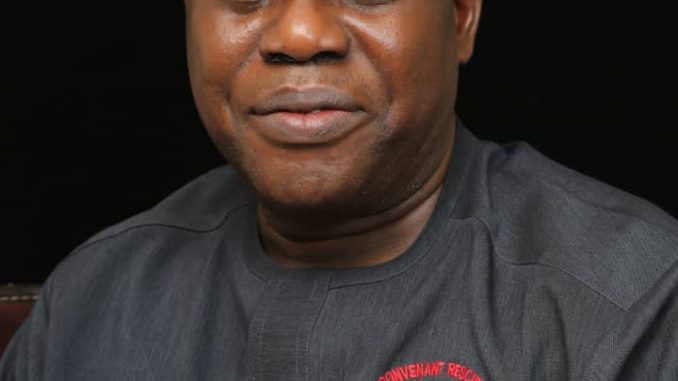
Democracy is about the contest of ideas and was never meant to produce violent outcomes. Sadly, in Africa’s most populous country Nigeria, the echoes, reactions and the sound-bite of war has taken over the political landscape before and after the 2023 general elections.
Although the struggle for political change by some reform activists in Nigeria has revolutionized the democratic sphere from various perspectives, despite the misgivings in some quarters – particularly the restive youths and some disgruntled elements pushing for change of government through unorthodox ways.
Notwithstanding, countless number of these changes were achieved. However, some people abhors the notion that sufficient changes that can guarantee a free and fair election were made and equally claimed that the institutions in charge of elections in Nigeria have not shown adequate transparency and remained largely unindependent.
Regardless, this contribution seeks to explore the extent to which various reforms adopted in the post-2007 era have democratised the space. Furthermore, it aims to further examines the contestation of ideas that characterised the political reform processes in Nigeria. Furthermore, guided by the democracy theory, it questions the extent to which the Justice Mohammed Lawal Uwais, committee reform in Nigeria has democratised the political space, as constituted by President Umaru Musa Yar’adua led government.
The reform was expected to signpost the beginning of a new dawn.Additionally, the other members of the Uwais committee composed of a highly intellectual and erudite class including the best brains from the academic, Civil Society Organizations, professional groups and Civil service.
With such composition of accomplished personality; why then, do we still have issues that create animosity and bad blood generated by reasons of perceived marginalization, complains about rigging of election and dissatisfactions among our citizens? This is a million dollars question.
I have been pondering about the recent outcries on the fidelity and independence of our electoral umpire and its institution. The concerns are mutual, it seems to be an issue bordering on trust deficits which needs to be properly and holistically addressed.
I must place on record: sections 154 (1 and 3 and 156 (3) that confers on the President the powers to appoint a chairman and national commissioners of INEC, in consultation with the Council of States which need to be properly scrutinized and synchronized with the Justice Mohammed Uwais committee’s recommendations.
In addition, the Sheikh Ahmed Lemu Committee as well as the Senator Ken Nnamani Committee on Constitutional and Electoral Reform in 2017 recommended the need for an electoral offenses commission.
Going forward, it is pertinent to address such issues that reduces the level of mistrust given the significance of independence status of the umpire. Flowing from the above, given the humongous amount of money invested in the process and the deployment of high-tech in our system.
It is assumed that the days of elections manipulations and disputing results should have been over. It is therefore, necessary to commence the total implementation of the committee’s report. In my view, the only way of addressing any noticeable lapses is to fully implement the salient recommendations of the National Electoral Reform Committee (NERC).As a result of the foregoing, I am perturbed, not only by the cacophony of voices in the opposition parties and the street restlessness but the unwarranted deaths in different part of the country, particularly the South, echoing the ethnic and religious intolerance of the people! Therefore, the need for retrospection, putting in check issues of tribal and religious animosities intertwined and masqueraded as idealism, which may just be an undercurrent effects of a hidden agenda.
It is therefore, unreasonable to hold the chairman of the Independent National Electoral Commission (INEC), Prof. Mahmood Yakubu, solely responsible for the assumed lapses as posited by some disgruntled elements. Those who are behind the misadventures of several attacks that resulted in malfunctioning of the high-tech, violence, divisive politicking should share in blames. Because Nigeria is a multi tribal, ethnic and religious entity and this isn’t far from what is obtainable in most tribal diverse nations.
The example that readily comes to mind is the unpleasant situation playing out in Lagos, the commercial capital city of Nigeria. It is a home for many of our compatriots particularly the Igbo. Sadly, unlike the northerners, our brothers and sisters from the east are pushing a very dangerous narratives coded as “Lagos is a no-man’s-land” while playing the victim mentality.
Unfortunately for them, this has eventually been put to rest by the real owners of Lagos – although in somewhat crude manners in some areas of the State!What an audacious recklessness from highly respectable ethnic group.
If we’re looking forward to building a country where the system works, we must condemn the activities of those preaching divisiveness, intolerance and spreading falsehood. Same applies to religious extremists.
It is against this backdrop that I’m admonishing our vibrant citizens with the words of trust: trust is the “glue” or cement for governing societies, conferring upon government its basic source of power.
In contrast, dissatisfaction, disenchantment, and distrust can undermine that legitimacy. A lack of trust, therefore, is the prerequisite to undermining the ability of governments to perform. In conclusion, let it be noted that: those who are skilled in combat do not get angered, those skilled at winning do not become afraid. Thus, the wise win before they fight while the ignorant fight to win. Nigeria will rise again!
